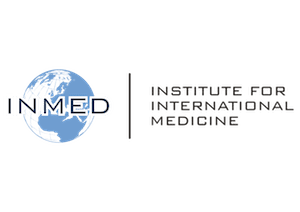PQC - USPC 801 | $395
Quality medical care in low-resource settings is often hampered by lack of objective clinical information. ultrasonography is a useful technology in such settings, providing vital data to support patient care decision-making. This course enhances performance and interpretation for ultrasonography of carotid, thyroid, heart, lung, aorta, abdomen, urinary tract, DVT screening, joint and venous access, and eFAST exam.
At the completion of the Professional Qualification Course in Ultrasound for Primary Care, learners will be able to:
- Apply the basic principles of ultrasonography to clinical settings
- Perform basic ultrasonography of carotid, thyroid, heart, aorta, abdomen, urinary tract, DVT screening, and joint and venous access
- Interpret basic ultrasonography of carotid, thyroid, heart, aorta, abdomen, urinary tract, DVT screening, and joint and venous access
- Perform eFAST (Extended Focused Assessment with Sonography for Trauma) Exams
- Interpret eFAST (Extended Focused Assessment with Sonography for Trauma) Exams
PQC – OBUS 806 | $495
Obstetrics care requires critical information about the mother and baby. Ultrasound is an essential technology to supply such vital information. This course develops skills in early pregnancy ultrasound (confirmation, location) and third trimester ultrasound (parity, pulse, pocket, placenta, presentation, postpartum evaluation). This course requires that participants already have attained basic obstetrics skills and experience.
At the completion of this course, participants will be able to:
- Confirm early pregnancy diagnosis and location
- Identify common gynecological pathology
- Identify the 6 Ps of late pregnancy: parity, pulse, pocket, placenta, presentation, postpartum evaluation
PQC – HSLH 805 | $295
The INMED Professional Qualification Course in Hands-On Skills for Low-Resource Healthcare is designed to provide learners a review of most commonly needed clinical skills in settings with a shortage of specialists. Included are hands-on sessions covering wound care and suturing, extremity trauma and immobilization, complicated obstetrics, newborn resuscitation, tropical fever evaluation, and community health survey techniques.
At the completion of this course, participants will be able to demonstrate:
- Wound evaluation and urgent management including repair
- Extremity trauma evaluation and management including immobilization
- Tropical fever evaluation and management
- Management of common obstetrics complications
- Newborn resuscitation techniques
- Community health survey techniques
